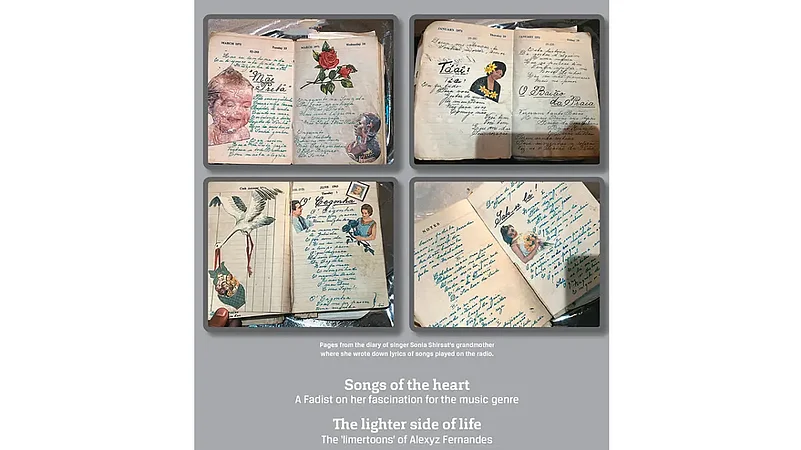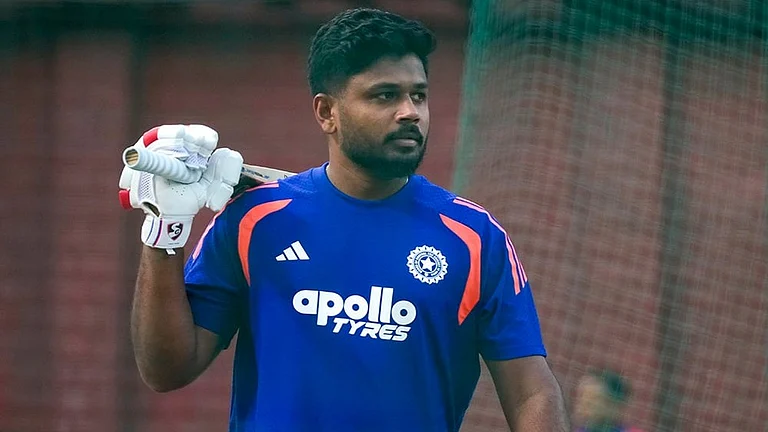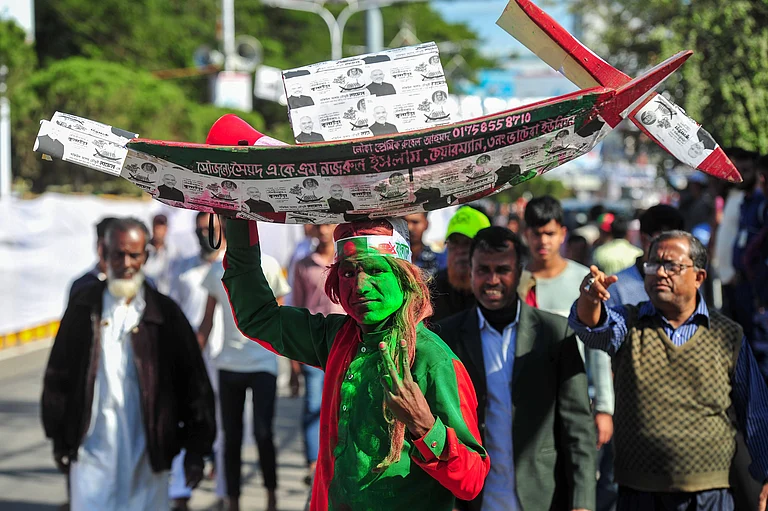There was a time when I could see that the audience for the Fado in Goa was disappearing. As the years went by, the familiar faces were passing on and those that were young had already greyed. It was time to increase the audience for the Fado in Goa and the only way of doing this was to take the Fado to a new audience and get them to fall in love with this music.
Cada um é p’ro que nasce, E eu nasci para o Fado
—Fernando Farinha
(Each one is born for what he/she is born for, And I was born for the Fado)
My journey with the Fado started quite surprisingly. Singing was a passion that had just recently converted into a part profession. A hobby that had now got a lucrative makeover. However, Fado was still out of my repertoire. I had been singing everything, from Hindi Bollywood classics to local folk music. After singing a ballad, O Pastor, for a Portuguese singing competition, I was chosen to sing a Fado at a small concert. The Portuguese guitarist, Antonio Chainho, had just finished a guitar workshop in Goa, and the then director of Fundacao Oriente, Sergio Mascarenhas, asked me to sing a Fado at this concert. It was here that Antonio Chainho told me that the voice I had been gifted with suited the Fado.
O Fado tem não sei o quê, que prende a alma da gente.
—Fernando Farinha
(The Fado has I don’t know what, that traps people’s souls)
ALSO READ: Tears Of The Mermaid: The Melancholy Of Goa

Singing the Fado always creates an anguish within me. A sense of being transported to another place and time, with an array of unfamiliar emotions and an unexplainable heaviness in the chest. The pain in the poem becomes a part of me and I become one with it. It’s difficult to put it into words. But that’s what Fado does. This pain, through the singing, engulfs the audience and then there is a moment when the singer and the listener have the same feeling, the same breath and the same heartbeat.
Grande grande era a Cidade, e niguem me conhecia.
—Pedro Homem de Melo
(Great and big was the City, and nobody knew me)
Nobody knew me in the city of Lisbon as I walked the streets and visited various ‘Casas de Fado’, Houses of Fado. From every door, every window that I passed, would come a different voice, laden with melancholia and passion. I look back and wonder how I managed to sing in a language that I didn’t speak, a music genre from a country that I never lived in and yet feel the emotion of the Fado. The learning process went from understanding the genre, learning about its history and culture and most importantly the language itself. Every visit to Portugal was like a small crash course in my Fado education.
Minha mãe, eu canto a noite, Porque o dia me castiga.
—Vasco da Lima Couto
(My mother, I sing at night, Because the day punishes me)
Living across the globe from Portugal and yet connecting with the music form so deeply is something that still intrigues me, but probably came from my mother and grandmother. Both these ladies loved this music. My grandmother made these beautiful books, very artistically decorated and filled with lyrics of Fados that she heard on the radio, little knowing that a future granddaughter who she would not live to see, would be singing and later teaching the genre in this part of the world.
Fiz do destino dum Fado, O Fado do meu destino.
—Fernando Farinha.
(I made the fate of a Fado, the fate of my destiny)

Travelling for Fado performances has always been a wonderful thing. Whether it be within the country with my musicians or abroad to collaborate with musicians from there. With Fado performances from Canada to Singapore, it’s been a wonderful journey. To be able to present this art form to novice audiences as well as experts is challenging and very satisfying and makes the effort worth it.
Como se nasce poeta, também se nasce fadista.
—Rodrigo de Melo
(Just as a poet is born a poet, so is a Fadista [Fado singer] )
From a very young age, there was this image in my mind, of me singing in a concert hall with audiences seated in balconies at multiple levels, the halls highly ornamented and decorated, historic spaces, huge audiences, etc. My first Fado concert, Lisbon 2008, was sold out two days in advance. I performed at the prestigious Teatro Tivoli, with its beautiful interiors and balconies. I was blessed to sing to an audience of about 3,000 at Praça do Commercio. All this without a formal training in music or the language of Portuguese. Fate! Blessed!!
Cantarei até que a voz me doa. Pra cantar, cantar sempre o meu Fado.
—Silva Tavares
(I will sing till my voice hurts, to always sing my Fado)

Through my work, I hope I can take the Fado to a wider and newer audience in India as well as abroad. The fact that it has existed in India for such a long time makes it even more important that this beautiful music gets an assured place in the future in this part of the world.
Fado in the City was a project in 2016, through which we introduced this music to new audiences that invariably fell in love with the Fado. What remained was to get this new interested audience to learn the Fado and be informed. Fado de Goa is an ongoing effort in this regard, where we train people to sing the Fado, as well as impart knowledge about this genre of music with the sole intention of preserving and promoting this art form. Regular Fado performances at venues like Alfama at the Cidade de Goa and Madragoa at the Centre for Indo-Portuguese Art (CIPA), lecture demonstrations at various educational institutions and SPICMACAY programmes, are another effort at popularising the Fado.
The effort is to have the next generation take over and ensure that the Fado has a secure future in Goa as well as India in the times to come.
(This appeared in the print edition as "Music Without Borders")
(Views expressed are personal)





















